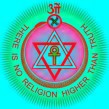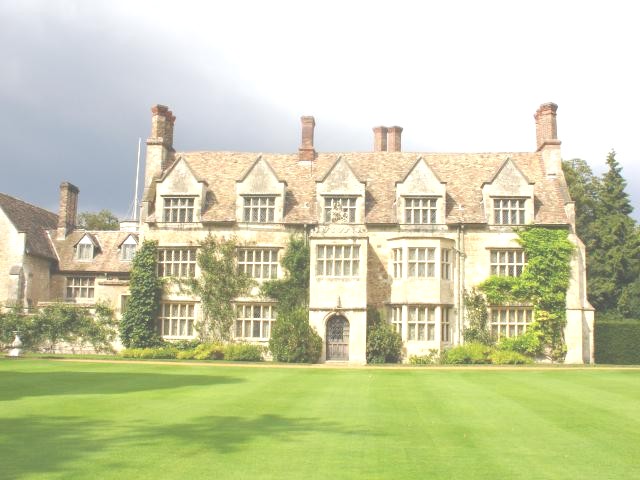The Writings of Alfred Percy Sinnett
Alfred
Percy Sinnett
1840
-1921
Return to
Esoteric Buddhism Index
Esoteric Buddhism
Chapter 12
The Doctrine Reviewed
LONG familiarity with the esoteric doctrine will alone give rise to
a full perception of the manner in which it harmonizes with facts of Nature
such as we are all in a position to observe. But something may be done to
indicate the correspondences that may be traced between the whole body of
teaching now set forth and the phenomena of the world around us.
Beginning with the two great perplexities of ordinary philosophy — the conflict
between free-will and predestination, and the origin of evil, it will surely be
recognized that the system of Nature now explained enables us to deal with
those problems more boldly than they have ever yet been handled. Till now the
most prudent thinkers have been least disposed to profess that either by the
aid of metaphysics or religion could the mystery of free-will and
predestination be unraveled. The tendency of thought has been to relegate the
whole enigma to the region of the unknowable. And, strange to say, this has
been done contentedly by people who have been none the less contented to accept
as more than a provisional hypothesis the religious doctrines which thus
remained incapable of reconciliation with some of their own most obvious
consequences. The omniscience of a personal Creator, ranging over the future as
well as the past, left man no room to exercise the independent authority over
his own destinies which nevertheless it was absolutely necessary to allow him
to exercise in order that the policy of punishing or rewarding him for his acts
in life could be recognized as anything but the most grotesque injustice. One
great English philosopher, frankly facing the embarrassment, declared in a
famous posthumous essay that, by reason of these considerations, it was
impossible that God could be all-good and all-potent. People were free
to invest him logically with one or other of these attributes, but not with
both. The argument was treated with the respect due to the great reputation of
its author, and put aside with the discretion due to respect for orthodox
tenets.
But the esoteric doctrine comes to our rescue in this emergency. First of all
it honestly takes into account the insignificant size of this world compared to
the universe. This is a fact of Nature which the early Christian church feared
with a true instinct, and fought with the cruelty of terror. The truth was
denied, and its authors were tortured for many centuries. Established at last
beyond even the authority of papal negations, the Church resorted to the
“desperate expedient,” to quote Mr Rhys David’s phrase, of pretending that it
did not matter.
The pretense till now has been more successful than its authors could have
hoped. When they dreaded astronomical discovery, they were crediting the world
at large with more remorseless logic than it ultimately showed any inclination
to employ. People have been found willing as a rule to do that which I have
described esoteric Buddhism as not requiring us to do, to keep their science
and their religion in separate water-tight compartments. So long and so
thoroughly has this principle been worked upon, that it has finally ceased to
be an argument against the credibility of a religious dogma to point out that
it is impossible. But when we establish a connection between our hitherto
divided reservoirs, and require them to stand at the same level, we cannot fail
to see how the insignificance of the earth’s magnitude diminishes in a
corresponding proportion the plausibility of theories that require us to regard
the details of our own lives as part of the general stock of a universal
Creator’s omniscience. On the contrary, it is unreasonable to suppose that the
creatures inhabiting one of the smaller planets of one of the smaller suns in
the ocean of the universe, where suns are but water-drops in the sea, are
exempt in any way from the general principle of government by law. But that principle
cannot co-exist with government by caprice, which is an essential condition of
such predestination as conventional discussions of the problems before us
associate with the use of the word. For be it observed that the predestination
which conflicts with free-will is not the predestination of races, but
individual predestination, associated with the ideas of divine grace of wrath.
The pre-destination of races, under laws analogous to those which control the
general tendency of any multitude of independent chances, is perfectly
compatible with individual free-will, and thus it is that the esoteric doctrine
reconciles the long-standing contradiction of Nature. Man has control over his
own destiny within constitutional limits, so to speak; he is perfectly free to
make use of his natural rights as far as they go, and they go practically to
infinity as far as he, the individual unit, is concerned. But the average human
action, under given conditions, taking a vast multiplicity of units into
account, provides for the unfailing evolution of the cycles which constitute
their collective destiny.
Individual predestination, it is true, may be asserted, not as a religious
dogma having to do with divine grace or wrath, but on purely metaphysical
grounds — that is to say, it may be argued that each human creature is
fundamentally, in infancy, subject to the same influence by similar
circumstances, and that an adult life is thus merely the product or impression
of all the circumstances which have influenced such a life from the beginning,
so that, if those circumstances were known, the moral and intellectual result
would be known. By this train of reasoning it can be made to appear that the
circumstances of each man’s life may be theoretically knowable by a
sufficiently searching intelligence; that hereditary tendencies, for example,
are but products of antecedent circumstances entering into any given
calculation as a perturbation, but not the less calculable on that account.
This contention, however, is no less in direct conflict with the consciousness
of humanity, than the religious dogma of individual predestination. The sense
of free-will is a factor in the process which cannot be ignored, and the
free-will of which we are thus sensible is not a mere automatic impulse, like
the twitching of a dead frog’s leg. The ordinary religious dogma and the
ordinary metaphysical argument both require us to regard it in that light; but
the esoteric doctrine restores it to its true dignity, and shows us the scope
of its activity, the limits of its sovereignty. It is sovereign over the
individual career, but impotent in presence of the cyclic law, which even so
positive a philosopher as Draper detects in human history — brief as the period
is which he is enabled to observe. And none the less does that collateral
quicksand of thought which J S Mill discerned alongside the contradictions of
theology — the great question whether speculation must work with the all-good
or all-potent hypothesis — find its explanation in the system now disclosed.
Those great beings, the perfected efflorescence of former humanity, who, though
far from constituting a supreme God, reign nevertheless in a divine way over
the destinies of our world, are not only not omnipotent, but, great as they
are, are restricted as regards their action by comparatively narrow limits. It
would seem as if, when the stage is, so to speak, prepared afresh for a new
drama of life, they are able to introduce some improvements into the action,
derived from their own experience in the drama with which they were concerned,
but are only capable, as regards the main construction of the piece, of
repeating that which has been represented before. They can do on a large scale
what a gardener can do with dahlias on a small one; he can evolve considerable
improvements in form and colour, but his flowers, however carefully tended,
will be dahlias still.
Is it nothing, one may ask in passing, in support of the acceptability of the
esoteric doctrine, that natural analogies support it at every turn? As it is
below, so it is above, wrote the early occult philosophers; the microcosm is a
mirror of the macrocosm. All Nature lying within the sphere of our physical
observation verifies the rule, so far as that limited area can exhibit any
principles. The structure of lower animals is reproduced with modifications in
higher animals, and in Man; the fine fibres of the leaf ramify like the
branches of the tree, and the microscope follows such ramifications, repeated
beyond the range of the naked eye. The dust-laden currents of rain-water by the
roadside deposit therein “sedimentary rocks” in the puddles they develop, just
as the rivers do in the lakes and the great waters of the world over the
sea-bed. The geological work of a pond and that of an ocean differ merely in
their scale, and it is only in scale that the esoteric doctrine shows the
sublimest laws of Nature differing in their jurisdiction over the man, and
their jurisdiction over the planetary family. As the children of each human
generation are tended in infancy by their parents, and grow up to tend another
generation in their turn, so in the whole humanity of the great manvantaric
periods, the men of one generation grow to be the Dhyân Chohans of the next,
and then yield their places in the ultimate progress of time to their
descendants, and pass themselves to higher conditions of existence.
Not less decisively than it answers the question about free-will, does the
esoteric doctrine deal with the existence of evil. This subject has been
discussed in its place in the preceding chapter on the Progress of Humanity;
but the esoteric doctrine, it will be seen, grapples with the great problem
more closely than by the mere enunciation of the way human free-will, which it
is the purpose of Nature to grow and cultivate into Dhyân Chohanship, must by
the hypothesis be free to develop evil itself, if it likes. So much for the
broad principle in operation, but the way it works is traceable in the present
teaching as clearly as the principle itself. It works through physical Karma,
and could not but work that way, except by a suspension of the invariable law
that causes cannot but produce effects. The objective man born into the
physical world is just as much the creation of the person he last animated, as
the subjective man who has in the interim been living the Devachanic existence.
The evil that men do lives after them, in a more literal sense even than
Shakespeare intended by those words. It may be asked, how can the moral guilt
of a man in one life cause him to be born blind or crippled at a different
period of the world’s history several thousand years later, of parents with
whom he has had, through his former life, no sort of physical connection
whatever? But the difficulty is met, by considering the operation of
affinities, more easily than may be imagined at the first glance. The blind or
crippled child as regards his physical frame, may have been the potentiality
rather than the product of local circumstances. But he would not have come into
existence unless there had been a spiritual monad pressing forward for
incarnation and bearing with it a fifth principle (so much of a fifth principle
as is persistent, of course) precisely adapted by its Karma to inhabit that
potential body. Given these circumstances, and the imperfectly organized child
is conceived and brought into the world, to be a cause of trouble to himself
and others — an effect becoming a cause in its turn — and a living enigma for
philosophers endeavouring to explain the origin of evil.
The same explanation applies with modifications to a vast range of cases that
might be cited to illustrate the problem of evil in the world. Incidentally,
moreover, it covers a question connected with the operation of the Karmic law
that can hardly be called a difficulty, as the answer would probably be
suggested by the bearings of the doctrine itself, but is none the less entitled
to notice. The selective assimilation of Karma-laden spirits with parentage
which corresponds to their necessities or deserts, is the obvious explanation
which reconciles rebirth with atavism and heredity. The child born may seem to
reproduce the moral and mental peculiarities of parents or ancestors as well as
their physical likeness, and the fact suggests the notion that his soul is as
much an offshoot of the family tree as his physical frame. It is unnecessary to
enlarge here on the multifarious embarrassments by which that theory would be
surrounded, on the extravagance of supposing that a soul thus thrown off, like
a spark from an anvil, without any spiritual past behind it, can have a
spiritual future before it. The soul, which was thus merely a function of the
body, would certainly come to an end with the dissolution of that out of which
it arose. The esoteric doctrine, however, as regards transmitted
characteristics, will afford a complete explanation of that phenomenon, as well
as of all others connected with human life. The family into which he is born
is, to the re-incarnating spirit, what a new planet is to the whole tide of
humanity on a round along the manvantaric chain. It has been built up by a
process of evolution working on a line transverse to that of humanity’s
approach; but it is fit for humanity to inhabit when the time comes. So with
the re-incarnating spirit, it presses forward into the objective world, the
influences which have retained it in the Devachanic state having been
exhausted, and it touches the spring of Nature, so to speak, provoking the
development of a child which without such an impulse would merely have been a
potentiality, not an actual development; but in whose parentage it finds — of
course unconsciously by the blind operation of its affinities — the exact
conditions of renewed life for which it has prepared itself during its last
existence. Certainly we must never forget the presence of exceptions in all
broad rules of Nature. In the present case it may sometimes happen that mere
accident causes an injury to a child at birth. Thus a crippled frame may come
to be bestowed on a spirit whose Karma has by no means earned that penalty, and
so with a great variety of accidents. But of these all that need be said is
that Nature is not at all embarrassed by her accidents; she has ample time to
repair them. The undeserved suffering of one life is amply redressed under the
operation of the Karmic law in the next, or the next. There is plenty of time
for making the account even, and the adepts declare, I believe, that, as a
matter-of-fact, in the long-run undeserved suffering operates as good luck
rather than otherwise, thereby deriving from a purely scientific observation of
facts a doctrine which religion has benevolently invented sometimes for the
consolation of the afflicted.
While the esoteric doctrine affords in this way an unexpected solution of the
most perplexing phenomena of life, it does this at no sacrifice in any
direction of the attributes we may fairly expect of a true religious science.
Foremost among the claims we may make on such a system is that it shall
contemplate no injustice, either in the direction of wrong done to the
undeserving, or of benefits bestowed on the undeserving; and the justice of its
operation must be discernible in great things and small alike. The legal maxim,
de minimis non curat lex, is means of escape for human fallibility from the
consequences of its own imperfections. There is no such thing as indifference
to small things in chemistry or mechanics. Nature in physical operations
responds with exactitude to small causes as certainly as to great, and we may
feel instinctively sure that in her spiritual operations also she has no clumsy
habit of treating trifles as of no consequence, of ignoring small debts in
consideration of paying big ones, like a trader of doubtful integrity content
to respect obligations which are serious enough to be enforced by law. Now the
minor acts of life, good and bad alike, are of necessity ignored under any
system which makes the final question at stake, admission to or exclusion from
a uniform or approximately uniform condition of blessedness. Even as regards
that merit and demerit which is solely concerned with spiritual consequences,
no accurate response could be made by Nature except by means of that infinitely
graduated condition of spiritual existence described by the esoteric doctrine
as the Devachanic state. But the complexity to be dealt with is more serious
than even the various conditions of Devachanic existence can meet. No system of
consequences ensuing to mankind after the life now under observation, can be
recognized as adapted scientifically to the emergency, unless it responds to
the sense of justice, in regard to the multifarious acts and habits of life
generally, including those which merely relate to physical existence, and are
not deeply coloured by right or wrong.
Now, it is only by a return to physical existence that people can possibly be
conceived to reap with precise accuracy the harvest of the minor causes they
may have generated when last in objective life. Thus, on a careful examination
of the matter, the Karmic law, so unattractive to Buddhist students, hitherto,
in its exoteric shape, and no wonder, will be seen not only to reconcile itself
to the sense of justice, but to constitute the only imaginable method of
natural action that would do this. The continued individuality running through
successive Karmic rebirths once realized, and the corresponding chain of
spiritual existences intercalated between each, borne in mind, the exquisite
symmetry of the whole system is in no way impaired by that feature which seems
obnoxious to criticism at the first glance, — the successive baths of oblivion
through which the reincarnating spirit has to pass. On the contrary, that
oblivion itself is in truth the only condition on which objective life could
fairly be started afresh. Few earth-lives are entirely free from shadows, the
recollection of which would darken a renewed lease of life for the former
personality. And if it is alleged that the forgetfulness in each life, of the
last, involves waste of experience and effort, and intellectual acquirements,
painfully or laboriously obtained, that objection can only be raised in
forgetfulness of the Devachanic life in which, far from being wasted, such
efforts and acquirements are the seeds from which the whole magnificent harvest
of spiritual results will be raised. In the same way the longer the esoteric
doctrine occupies the mind, the more clearly it is seen that every objection
brought against it meets with a ready reply, and only seems an objection from
the point of view of imperfect knowledge.
Passing from abstract considerations to others partly interwoven with practical
matters, we may compare the esoteric doctrine with the observable facts of
Nature in several ways with the view of directly checking its teachings. A
spiritual science which has successfully divined the absolute truth must
accurately fit the facts of earth whenever it impinges on earth. A religious
dogma in flagrant opposition to that which is manifestly truth in respect of
geology and astronomy, may find churches and congregations content to nurse it,
but is not worth serious philosophical consideration. How then does the
esoteric doctrine square with geology and astronomy?
It is not too much to say that it constitutes the only religious system that
blends itself easily with the physical truths discovered by modern research in
those branches of science. It not only blends itself with, in the sense of
tolerating, the nebula hypothesis and the stratification of rocks, it rushes
into the arms of these facts, so to speak, and could not get on without them.
It could not get on without the great discoveries of modern biology; and, as a
system recommending itself to notice in a scientific age, it could ill afford
to dispense with the latest acquisitions of physical geography.
The stratification of the earth’s crust is, of course, a plain and visible
record of the inter-racial cataclysms. Physical science is emerging from the
habits of timidity which its insolent oppression by religious bigotry for
fifteen centuries engendered, but it is still a little shy in its relations
with dogma, from the mere force of habit. In that way geology has been content
to say, such and continents, as their shell-beds testify, must have been more
than once submerged below and elevated above the surface of the ocean. It has
not yet grown used to the free application of its own materials to speculation
which trenches upon religious territory. But surely if geology were required to
interpret all its facts into a consistent history of the earth, throwing in the
most plausible hypotheses it could invent to fill up gaps in its knowledge, it
would already construct a history for mankind which in its broad outlines would
not be unlike that sketched out in the foregoing chapter on the Great World
Periods; and the further geological discovery progresses, our esoteric teachers
assure us, the more closely will the correspondence of the doctrine and the
bony traces of the past be recognized. Already we find experts from the Challenger
vouching for the existence of Atlantis, though the subject belongs to a class
of problems unattractive to the scientific world generally, so that the
considerations in favour of the lost continent are not yet generally
appreciated. Already thoughtful geologists are quite ready to recognize that in
regard to the forces which have fashioned the earth, this, the period within
the range of historic traces, may be a period of comparative inertia and slow
change; that cataclysmal metamorphoses may have been added formerly to those of
gradual subsidence, upheaval, and denudation. It is only a step or two to the
recognition as a fact, of what no one could any longer find fault with as a
hypothesis, that great continental upheavals and submergences take place
alternately; that the whole map of the world is not only thrown occasionally
into new shapes, like the pictures of a kaleidoscope as its coloured fragments
fall into new arrangements, but subject to systematically recurrent changes,
which restore former arrangements at enormous intervals of time.
Pending further discoveries, however, it will, perhaps, be admitted that we
have a sufficient block of geological knowledge already in our possession to
fortify the cosmogony of the esoteric doctrine. That the doctrine should have
been withheld from the world generally as long as no such knowledge had paved
the way for its reception can hardly be considered indiscreet for the part of
its custodians. Whether the present generation will attach sufficient
importance to its correspondence with what has been ascertained of Nature in
other ways remains to be seen.
These correspondences may, of course, be traced in biology as decisively as in
geology. The broad Darwinian theory of the Descent of Man from the animal
kingdom is not the only support afforded by this branch of science to the
esoteric doctrine. The detailed observations now carried out in embryology are
especially interesting for the light they throw on more than one department of
this doctrine. Thus the now familiar truth that the successive stages of ante-natal
human development correspond to the progress of human evolution through
different forms of animal life, is nothing less than a revelation, in its
analogical bearings. It does not merely fortify the evolutionary hypothesis
itself, it affords a remarkable illustration of the way Nature works in the
evolution of new races of men at the beginning of the great round-periods. When
a child has to be developed from a germ which is so simple in its constitution
that it is typical less of the animal — less even of the vegetable — than of
the mineral kingdom, the familiar scale of evolution is run over, so to speak,
with a rapid touch. The ideas of progress which may have taken countless ages
to work out in a connected chain for the first time, are once for all firmly
lodged in Nature’s memory, and thenceforth they can be quickly recalled in
order in a few months. So with the new evolution of humanity on each planet as
the human tide-wave of life advances. In the first round the process is
exceedingly slow, and does not advance far. The ideas of Nature are themselves
under evolution. But when the process has been accomplished once, it can be
quickly repeated. In the later rounds the life-impulse runs up the gamut of
evolution with a facility only conceivable by help of the illustration which
embryology affords. This is the explanation of the way the character of each
round differs from its predecessor. The evolutionary work which has been once
accomplished is soon repeated; then the round performs its own evolution at a
very different rate, as the child, once perfected up to the human type,
performs its own individual growth but slowly, in proportion to the earlier
stages of its initial development.
No elaborate comparison of exoteric Buddhism with the views of Nature, which
have now been set forth — briefly indeed, considering their scope and
importance, but comprehensively enough to furnish the reader with a general
idea of the system in its whole enormous range — will be required from me. With
the help of the information now communicated, more experienced students of
Buddhist literature will be better able to apply to the enigmas that may
contain, the keys which will unlock their meaning. The gaps in the public
records of Buddha’s teaching will be filled up readily enough now, and it will
be plain why they were left. For example, in Mr Rhys Davids’ book, I find this:
“Buddhism does not attempt to solve the problem of the primary origin of all
things;” and quoting from Hardy’s “Manual of Buddhism,” he goes on, “When
Malunka asked the Buddha whether the existence of the world is eternal or not
eternal, he made him no reply; but the reason of this was that it was
considered by the teacher as an inquiry that tended to no profit.” In reality
the subject was manifestly passed over because it could not be dealt with by a
plain yes or no, without putting the inquirer upon a false scent; while to put
him on the true scent would have required a complete exposition of the whole
doctrine about the evolution of the planetary chain, an explanation of that for
which the community Buddha was dealing with, was not intellectually ripe. To
infer from his silence that he regarded the inquiry itself as tending to no
profit, is a mistake which may naturally enough have been made in the absence
of any collateral knowledge, but none can be more complete in reality. No
religious system that ever publicly employed itself on the problem of the
origin of all things, has, as will now be seen, done more than scratch the
surface of that speculation, in comparison with the exhaustive researches of
the esoteric science of which Buddha was no less prominent an exponent than he
was a prominent teacher of morals for the populace.
The positive conclusions as to what Buddhism does teach — carefully as he has
worked them out — are no less inaccurately set forth by Mr Rhys Davids than the
negative conclusion just quoted. It was inevitable that all such conclusions
should hitherto be inaccurate. I quote an example, not to disparage the careful
study of which it is the fruit , but to show how the light now shed over the
whole subject penetrates every cranny, and puts an entirely new complexion on
all its features.
“Buddhism takes as its ultimate fact the existence of the material world, and
of conscious beings, living within it; and it holds that everything is subject
to the law of cause and effect, and that everything is constantly, though
imperceptibly, changing. There is no place where this law does not operate; no
heaven or hell therefore in the ordinary sense. There are worlds where angels
live whose existence is more or less material according as their previous lives
were more or less holy; but the angels die, and the worlds they inhabit pass
away. There are places of torment where the evil actions of men or angels
produce unhappy beings; but when the active power of the evil that produced
them is exhausted, they will vanish, and the worlds they inhabit are not
eternal. The whole Kosmos — earth and heavens, and hells — is always tending to
renovation or destruction, is always in a course of change, a series of
revolutions or of cycles, of which the beginning and the end alike are
unknowable and unknown. To this universal law of composition and dissolution,
men and gods form no exception; the unity of forces which constitutes a
sentient being must sooner or later be dissolved, and it is only through
ignorance and delusion that such a being indulges in the dream that it is a
separable and self-existent entity.”
Now, certainly this passage might be taken to show how the popular notions of
Buddhist philosophy are manifestly thrown off from the real esoteric
philosophy. Most assuredly that philosophy no more finds in the universe than
in the belief of any truly enlightened thinker — Asiatic or European — the unchangeable
and eternal heaven and hell of monkish legend; and “the worlds where angels
live,” and so on — the vividly real though subjective strata of the Devachanic
state — are found in Nature truly enough. So with all the rest of the
popular Buddhist conceptions just passed in review. But in their popular form
they are the nearest caricatures of the corresponding items of esoteric
knowledge. Thus the notion about individuality being a delusion, and the ultimate
dissolution as such of the sentient being, is perfectly unintelligible without
fuller explanations concerning the multitudinous æons of individual life, in as
yet, to us, inconceivable, but ever progressive, conditions of spiritual
exaltation, which come before that unutterably remote mergence into the
non-individualized condition. That condition certainly must be somewhere in
futurity, but its nature is something which no uninitiated philosopher, at any
rate, has ever yet comprehended by so much as the faintest glimmering guess. As
with the idea of Nirvana, so with this about the delusion of individuality,
writers on Buddhist doctrine derived from exoteric sources, have most
unfortunately found themselves entangled with some of the remote elements of
the great doctrine, under the impression that they were dealing with Buddhist
views of conditions immediately succeeding this life, The statement, which is
almost absurd, thus put out of its proper place in the whole doctrine, may be
felt, not only as no longer an outrage on the understanding, but as a sublime
truth, when restored to its proper place in relation to other truths. The
ultimate mergence of the perfect Man-god or Dhyân Chohan in the absolute
consciousness of paranirvana, has nothing to do, let me add, with the “heresy
of individuality,” which relates to physical personalities. To this subject I
recur a little later on.
Justly enough, Mr Rhys Davids says, in reference to the epitome of Buddhist
doctrine quoted above: “Such teachings are by no means peculiar to Buddhism,
and similar ideas lie at the foundation of earlier Indian philosophies.”
(Certainly by reason of the fact that Buddhism, as concerned with doctrine, was
earlier Indian philosophy itself.) “They are to be found indeed in other
systems widely separated from them in time and place; and Buddhism, in dealing
with the truth which they contain, might have given a more decisive and more
lasting utterance, if it had not also borrowed a belief in the curious doctrine
of transmigration, a doctrine which seems to have arisen independently, if not
simultaneously, in the Valley of the Ganges and the Valley of the Nile. The
word transmigration has been used, however, in different times and at different
places for theories similar, indeed, but very different; and Buddhism, in
adopting the general idea from post-Vedic Brahminism, so modified it as to
originate, in fact, a new hypothesis. The new hypothesis, like the old one,
related to life in past and future births, and contributed nothing to the
removal here, in this life, of the evil it was supposed to explain.”
The present volume should have dissipated the misapprehensions on which these
remarks rest. Buddhism does not believe in anything resembling the passage
backwards and forwards between animal and human forms, which most people
conceive to be meant by the principle of transmigration. The transmigration of
Buddhism is the transmigration of Darwinian evolution scientifically developed,
or rather exhaustively explored, in both directions. Buddhist writings
certainly contain allusions to former births, in which even the Buddha himself
was now one and now another kind of animal. But these had reference to the
remote course of pre-human evolution, of which his fully opened vision gave him
a retrospect. Never in any authentic Buddhist writings will any support be
found for the notion that any human creature, once having attained manhood,
falls back into the animal kingdom. Again, while nothing indeed could be more
ineffectual as an explanation of the origin of evil, than such a caricature of
transmigration as would contemplate such a return, the progressive rebirths of
human Egos into objective existence, coupled with the operation of physical
Karma, and the inevitable play of free-will within the limits of its privilege,
do explain the origin of evil, finally and completely. The effort of Nature
being to grow a new harvest of Dhyân Chohans whenever a planetary system is
evolved, the incidental development of transitory evil is an unavoidable
consequence under the operation of the forces of processes just mentioned,
themselves unavoidable stages in the stupendous enterprise set on foot.
At the same time the reader, who will now take up Mr Rhys Davids book and
examine the long passage on this subject, and on the skandhas, will
realize how utterly hopeless a task it was to attempt the deduction of any
rational theory of the origin of evil from the exoteric materials there made
use of. Nor was it possible for these materials to suggest the true explanation
of the passage immediately afterwards quoted from the Brahmajala Sutra: —
“After showing how the unfounded belief in the eternal existence of God or gods
arose, Gautama goes on to discuss the question of the soul, and points out
thirty-two beliefs concerning it, which he declares to be wrong. These are shortly
as follows: ‘Upon what principle or on what ground, do these mendicants and
Brahmans hold the doctrine of future existence? They teach that the soul is
material, or is immaterial, or is both or neither; that it will have one or
many modes of consciousness; that its perceptions will be few or boundless;
that it will be in a state of joy or of misery or of neither. These are the
sixteen heresies, teaching a conscious existence after death. Then there are
eight heresies teaching that the soul material or immaterial, or both or
neither, finite or infinite, or both or neither, has one unconscious existence
after death. And, finally, eight others which teach that the soul, in the same
eight ways, exists after death in a state of being neither conscious nor
unconscious. Mendicants,’ concludes the sermon, ‘that which binds the teacher
to existence (viz. tanha, thirst) is cut off, but his body still
remains. While his body shall remain, he will be seen by gods and men, but
after the termination of life, upon the dissolution of the body, neither gods
nor men will see him.’ Would it be possible in a more complete and categorical
manner to deny that there is any soul — anything of any kind which continues to
exist in any manner after death?”
Certainly, for exoteric students, such a passage as this could not but seem in
flagrant contradiction with those teachings of Buddhism which deal with the
successive passages of the same individuality through several incarnations, and
which thus along another line of thought may seem to assume the existence of a
transmissible soul, as plainly as the passage quoted denies it. Without a
comprehension of the seven principles of man, no separate utterances on the
various aspects of this question of immortality could possibly be reconciled.
But the key now given leaves the apparent contradiction devoid of all
embarrassment. In the passage last quoted Buddha is speaking of the astral
personality, while the immortality recognized by the esoteric doctrine is that
of the spiritual individuality. The explanation has been fully given in the
chapter on Devachan, and in the passages quoted there from Colonel Olcott’s “Buddhist
Catechism.” It is only since fragments of the great revelation this volume
contains have been given out during the last two years in The Theosophist
[magazine] , that the important distinction between personality and
individuality, as applied to the question of human immortality, has settled
into an intelligible shape; but there are plentiful allusions in former occult
writing, which may now be appealed to in proof of the fact that former writers
were fully alive to the doctrine itself. Turning to the most recent of the
occult books in which the veil of obscurity was still left to wrap the doctrine
from careless observation, though it was strained in many places almost to
transparency, we might take any one of a dozen passages to illustrate the point
before us. Here is one: ---
“The philosophers who explained the fall into generation their own way, viewed
spirit as something wholly distinct from the soul. They allowed its presence in
the astral capsule only so far as the spiritual emanations or rays of the
“shining one” were concerned. Man and soul had to conquer their immortality by
ascending toward the unity, with which, if successful, they were finally
linked, and into which they were absorbed, so to say. The individualization of
man after death depended on the spirit, not on his body and soul. Although the
word ‘personality’ in the sense in which it is usually understood, is an
absurdity if applied literally to our immortal essence, still the latter is a
distinct entity, immortal and eternal per se, and as in the case of criminals
beyond redemption, when the shining thread which links the spirit to the soul
from the moment of the birth of a child, is violently snapped, and the
disembodied entity is left to share the fate of the lower animals, to dissolve
into ether, and have its individuality annihilated — even then the spirit
remains a distinct being.” [“Isis Unveiled,” volume 1, Page 315]
No one can read this — scarcely any part, indeed, of the chapter from which it
is taken — without perceiving, by the light of the explanations given in the
present volume, that the esoteric doctrine, now fully given out, was perfectly familiar
to the writer — though I have been privileged to put it for the first time into
plain and unmistakable language.
It takes some mental effort to realize the difference between personality and
individuality, but the craving for the continuity of personal existence — for
the full recollection always of those transitory circumstances of our present
physical life which make up the personality — is manifestly no more than a
passing weakness of the flesh. For many people it will perhaps remain irrational
to say that any person now living, with his recollections bounded by the years
of his childhood, is the same individual as some one of quite a different
nationality and epoch who lived thousands of years ago, or the same that will
reappear after a similar lapse of time under some entirely new conditions in
the future. But the feeling “I am I,” is the same through the three lives, and
through all the hundreds; for that feeling is more deeply seated than the
feeling, “I am John Smith, so high, so heavy, with such and such property and
relations.” Is it inconceivable — as a notion in the mind — that John Smith,
inheriting the gift of Tithonus, changing his name from time to time, marrying
afresh every other generation or so, losing property here, coming into possession
of property there, and getting interested as time went on in a great variety of
different pursuits — is it inconceivable that such a person in a few thousand
years should forget all circumstances connected with the present life of John
Smith, just as if the incidents of that life for him had never taken place? And
yet the Ego would be the same. If this is conceivable in the imagination, what
can be inconceivable in the individual continuity of an intermittent life,
interrupted and renewed at regular intervals, and varied with passages through
a purer condition of existence.
No less than it clears up the apparent conflict between the identify of
successive individualities and the “heresy” of individuality, will the esoteric
doctrine be seen to put the “incomprehensible mystery” of Karma, which Mr Rhys
Davids disposes of so summarily, on a perfectly intelligible and scientific
basis. Of this he says that because Buddhism “does not acknowledge a soul,” it
has to resort to the desperate expedient of a mystery to bridge over the gulf
between one life and another somewhere else, the doctrine, namely, of Karma.
And he condemns the idea as a “non-existent fiction of the brain.” Irritated as
he feels with what he regards as the absurdity of the doctrine, he yet applies
patience and great mental ingenuity in the effort to evolve something that
shall feel like a rational metaphysical conception out of the tangled
utterances concerning Karma of the Buddhist scriptures. He writes: —
“Karma, from a Buddhist point of view, avoids the superstitious extreme, on the
one hand, of those who believe in the separate existence of some entity called
the soul; and the irreligious extreme on the other of those who do not believe
in moral justice and retribution. Buddhism claims to have looked through the
word soul for the fact it purports to cover, and to have found no fact at all,
but only one or other of twenty different delusions which blind the eyes of
men. Nevertheless, Buddhism is convinced that if a man reaps sorrow, disappointment,
pain, he himself and no other must at some time have sown folly, error, sin,
and if not in this life, then in some former birth. Where, then, in the latter
case, is the identity between him who sows and him who reaps? In that which
alone remains when a man dies, and the constituent parts of the sentient being
are dissolved, in the result, namely, of his action, speech, and thought, in
his good or evil Karma (literally his doing), which does not die. We are
familiar with the doctrine, ‘Whatever a man soweth, that shall he also reap,’
and can therefore enter into the Buddhist feeling that whatever a man reaps
that he must also have sown; we are familiar with the doctrine of the
indestructibility of force, and can therefore understand the Buddhist dogma
(however it may contravene our Christian notions) that no exterior power can
destroy the fruit of a man’s deeds, that they must work out their full effect
to the pleasant or the bitter end. But the peculiarity of Buddhism lies in
this, that the result of what a man is or does is held not to be dissipated, as
it were, into many separate streams, but to be concentrated together in the
formation of one new sentient being — new, that is, in its constituent parts
and powers, but the same in its essence, its being, its doing, its Karma.”
Nothing could be more ingenious as an attempt to invent for Buddhism an
explanation of its “mystery” on the assumption that the authors of the mystery
threw it up originally as a “desperate expedient” to cover their retreat from
an untenable position. But in reality the doctrine of Karma has a far simpler
history, and does not need so subtle an interpretation. Like many other
phenomena of Nature having to do with futurity, it was declared by Buddha an
incomprehensible mystery, and questions concerning it were thus put aside, but
he did not mean that because it was incomprehensible for the populace, it was
incomprehensible or any mystery at all for the initiates in the esoteric
doctrine. It was impossible to explain it without reference to the esoteric
doctrine, but the outlines of that science once grasped, Karma, like so much
else, becomes a comparatively simple matter, a mystery only in the sense in
which also the affinity of sulphuric acid for copper, and its superior affinity
for iron, are also mysteries. Certainly esoteric science for its “lay chelas”
at all events, like chemical science for its lay chelas, — all students, that
is to say, of its mere physical phenomena, — leaves some mysteries unfathomed
in the background. I am not prepared to explain by what precise molecular
changes the higher affinities which constitute Karma are stored up in the
permanent elements of the fifth principle. But no more is ordinary science
qualified to say what it is in a molecule of oxygen, which induces it to desert
the molecule of hydrogen with which it was in alliance in the raindrop, and
attach itself to a molecule of the iron of a railing on which it falls. But the
speck of rust is engendered, and a scientific explanation of that occurrence is
held to have been given when its affinities are ascertained and appealed to.
So with Karma, the fifth principle takes up the affinities of its good and evil
deeds in its passage through life, passes with them into Devachan, where those
which are suitable to the atmosphere, so to speak, of that state, fructify and
blossom in prodigious abundance, and then passes on, with such as have not yet
exhausted their energy, into the objective world once more. And as certainly as
the molecule of oxygen brought into the presence of a hundred other molecules
will fly to that with which it has the most affinity, so will the Karma-laden
spiritual monad fly to that incarnation with which its mysterious attractions
link it. Nor is there in that process any creation of a new sentient being,
except in the sense that the new bodily structure evolved is a new instrument
of sensation. That which inhabits it, that which feels joy or sorrow, is the
old Ego — walled off by forgetfulness from its last set of adventures on earth,
it is true, but reaping their fruit nevertheless — the same “I am I” as before.
“Strange it is,” Mr Rhys Davids thinks, that “all this,” the explanation of
Buddhist philosophy which esoteric materials have enabled him to give, “should
have seemed not unattractive, these 2300 years and more, to many despairing and
earnest hearts — that they should have trusted themselves to the so seeming
stately bridge which Buddhism has tried to build over the river of the
mysteries and sorrows of life . . . . They have failed to see that the very
keystone itself, the link between one life and another, is a mere word — this
wonderful hypothesis, this airy nothing, this imaginary cause beyond the reach
of reason — the individualized and individualizing grace of Karma.”
It would have been strange indeed if Buddhism had been built on such a frail
foundation; but its apparent frailty has been simply due to the fact that its
mighty fabric of knowledge has hitherto been veiled from view. Now that the
inner doctrine has been unveiled, it will be seen how little it depends for any
item of its belief on shadowy subtleties of metaphysics. So far as these have
clustered round Buddhism they have merely been constructed by external
interpreters of stray doctrinal hints that could not be entirely left out of
the simple system of morals prescribed for the populace.
In that which really constitutes Buddhism we find a sublime simplicity, like
that of Nature herself — one law running into infinite ramifications —
complexities of detail, it is true, as Nature herself is infinitely complex in
her manifestations, however unchangeably uniform in her purposes, but always
the immutable doctrine of causes and their effects, which in turn become causes
again in an endless cyclic progression.
Bibliography
Blavatsky, H.P. Isis Unveiled, two Volumes, New York, 1877
Davids, Rhys, T. W. Buddhism,” etc. New York, 1878
Draper, J. W. History of the Intellectual Development of
Europe. New York, 1863
Flammarion, Camille.La Résurrection et la Fin des Mondes.
Paris
Hardy, Robert Spence. Manual of Buddhism, in its Modern Development,
translated from Singhalese mss. 2nd ed London, 1880
Lévi, Éliphas. (pseudo of Alphonse Louie Constant) Dogme et
Rituel de la Haute Magie, Paris, 1861. (later translated by A. E. Waite as Transcendental
Magic)
Lillie, Arthur. Buddha and Early Buddhism, Edinburg, 1880
Olcott, Henry Steel. Buddhist Catechism, Madras, 1881
Oldenberg, Hermann. Buddha: His Life, His Doctrine, His Order,
Translated by Hoey, London, 1882
The Theosophist (periodical) started by H.P. Blavatsky and issued continuously
from Madras, India since 1879. Issues cited: October 1881; March 1882; June
1883.
Return to
Esoteric Buddhism Index
___________________________________
Biography
For more info on Theosophy
Try these
Cardiff Theosophical Society meetings
are informal
and there’s always a cup of tea afterwards
The Cardiff Theosophical
Society Website
The National Wales Theosophy
Wesbsite
Dave’s Streetwise Theosophy
Boards
If
you run a Theosophy Group then please
Feel
free to use any material on this Website
Theosophy
Cardiff’s Instant Guide to Theosophy
One
Liners & Quick Explanations
The main criteria for the
inclusion of
links on this site is that
they are have some
relationship (however tenuous)
to Theosophy
and are lightweight, amusing
or entertaining.
Topics include Quantum Theory
and Socks,
Dick Dastardly and Legendary Blues Singers.
No
Aardvarks were harmed in the
History
of the Theosophical Society
General pages about Wales,
Welsh History
and The History of Theosophy
in Wales
Her Teachers Morya & Koot
Hoomi
The
Most Basic Theosophy Website in the Universe
If you run a Theosophy Group
you can use
this as an introductory
handout
Lentil burgers, a thousand
press ups before breakfast and
the daily 25 mile run may put
it off for a while but death
seems to get most of us in the
end. We are pleased to
present for your
consideration, a definitive work on the
subject by a Student of
Katherine Tingley entitled
Theosophy and the Number Seven
A selection of articles
relating to the esoteric
significance of the Number 7
in Theosophy
The Spiritual Home of Urban Theosophy
The Earth Base for Evolutionary Theosophy
The Birmingham Annie Besant Lodge
_____________________
Camberley, Surrey, England GU15 - 2LF
Tekels Park to be Sold to a Developer
Concerns are raised about the fate of the wildlife as
The Spiritual Retreat, Tekels Park in Camberley,
Surrey, England is to be sold to a developer
Tekels Park is a 50 acre woodland park, purchased
for the Adyar
Theosophical Society in England in 1929.
In addition to concern about the park, many are
worried about
the future of the Tekels Park Deer
as they are not a protected species.
Many feel that the sale of a
sanctuary
for wildlife to a
developer can
only mean
disaster for the park’s animals
Confusion as the Theoversity moves out of
Tekels Park to Southampton, Glastonbury &
Chorley in Lancashire while the leadership claim
that the Theosophical Society will carry on
using
Tekels Park despite its sale to a developer
Future of Tekels Park Badgers in Doubt
Tekels Park & the Loch
Ness Monster
A Satirical view
of the sale of Tekels Park
in Camberley,
Surrey to a developer
The Toff’s Guide to the Sale
of Tekels Park
What the men in
top hats have to
say about the
sale of Tekels Park
____________________
Theosophy Cardiff
Nirvana Pages
Glastonbury
Pages
The Theosophy
Cardiff Guide to
The Theosophy Cardiff
Guide to
The
Theosophy Cardiff Guide to
The Terraced Maze of Glastonbury Tor
Glastonbury and Joseph of Arimathea
The
Grave of King Arthur & Guinevere
Views
of Glastonbury High Street
The
Theosophy Cardiff Guide to
__________________________
Classic Introductory Theosophy Text
A Text Book of Theosophy By C
What Theosophy Is From the Absolute to Man
The Formation of a Solar System The Evolution of Life
The Constitution of Man After Death Reincarnation
The Purpose of Life The Planetary Chains
The Result of Theosophical Study
An Outstanding
Introduction to Theosophy
By a student of
Katherine Tingley
Elementary Theosophy Who is the Man? Body and Soul
Body, Soul and Spirit Reincarnation Karma
Try these if you are
looking for a
local Theosophy Group or Centre
UK Listing of
Theosophical Groups
Worldwide
Directory of Theosophical Links
General pages about Wales, Welsh
History
and The History of Theosophy
in Wales
Wales is a Principality
within the United Kingdom
and has an
eastern border with England.
The land area is
just over 8,000 square miles.
Snowdon in North
Wales is the highest mountain at 3,650 feet.
The coastline is
almost 750 miles long.
The population of Wales as at the 2001 census is 2,946,200.
Cardiff Theosophical Society
in Wales
Cardiff, Wales, UK. CF24 – 1DL
_________________
Wales Picture Gallery
Anglesey Abbey
Bangor
Town Clock
Colwyn
Bay Centre
The
Great Orme
Llandudno
Promenade
Great
Orme Tramway
New
Radnor
Blaenavon
Ironworks
Llandrindod
Wells
Cardiff Theosophical Society
in Wales
Cardiff, Wales, UK. CF24 – 1DL
Presteign
Railway
Caerwent Roman Ruins
Colwyn
Bay Postcard
Ferndale
in the
Cardiff, Wales, UK, CF24 –
1DL
Denbigh
National
Museum of
Nefyn
Penisarwaen
Cardiff Theosophical Society
in Wales
Cardiff, Wales, UK. CF24 – 1DL


































